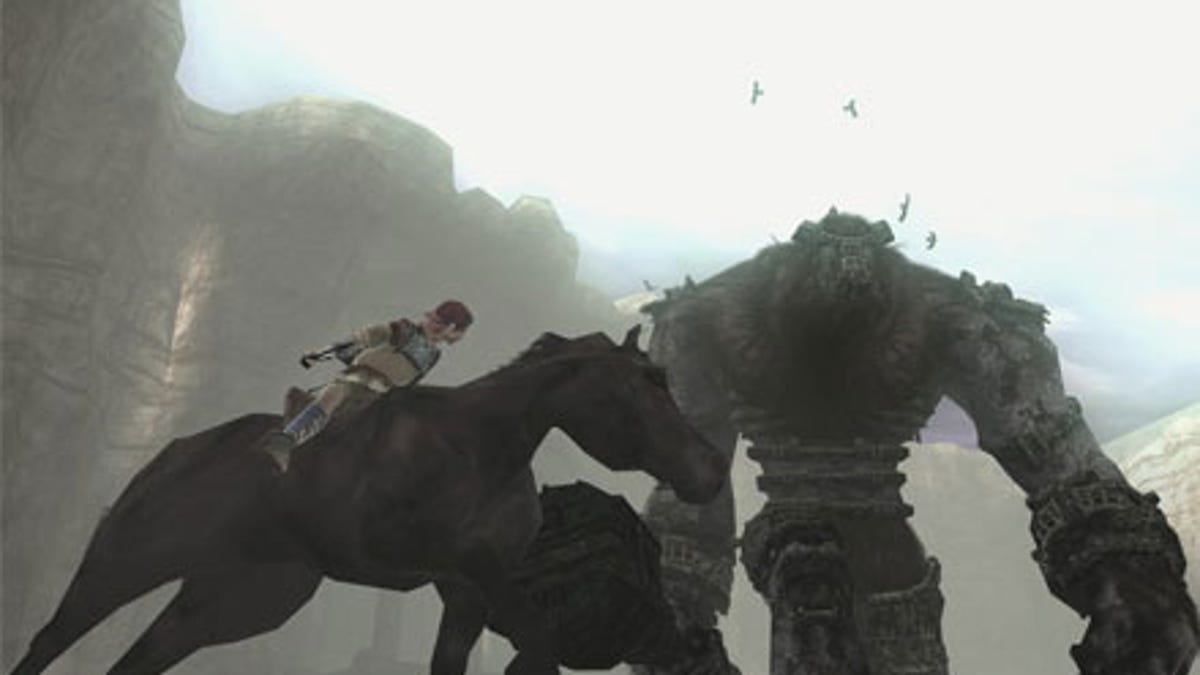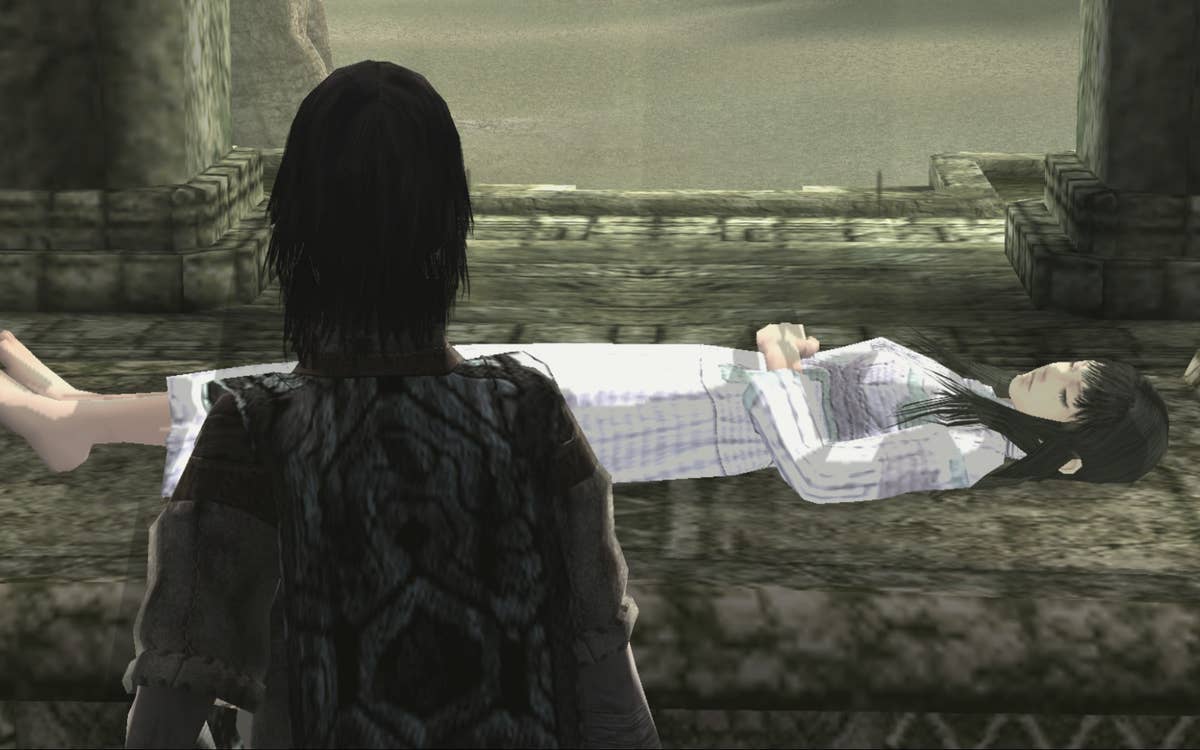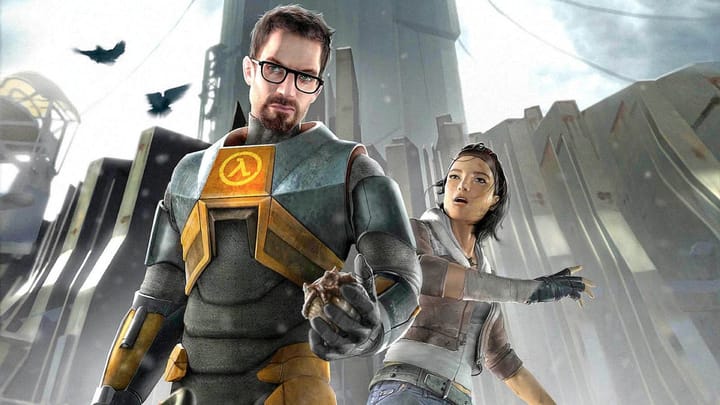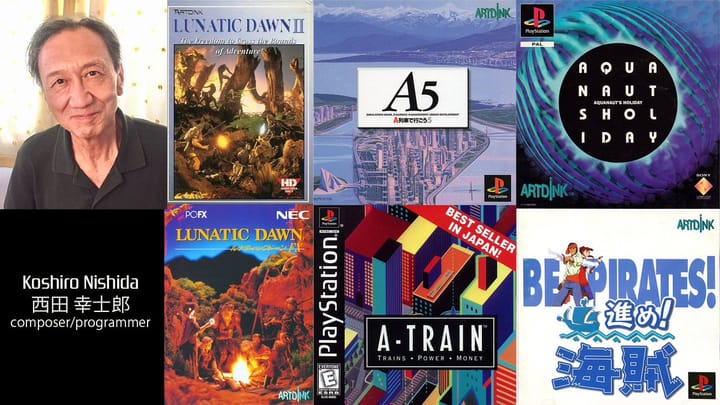Shadow of the Colossus Helped Me Through My Grief
When I was 18, I faced death for the first time. Gaming provided support and comfort during a time when I found it difficult to open up about the pain it brought.

Trigger warning: Death
Losing my granny was a challenging period for our family.
It marked the first time I was old enough to understand the impact of a family member's passing, affecting me in ways previous deaths had not. It was sudden, traumatic even, as she writhed around in agony on the hospital bed, unable to articulate the fear that was etched on her face.
Death can't be like this, can it? She's in agony, why aren't they helping?
Morphine eventually did help. Multiple doses. Her grip on reality was slipping away with each injection, but then so too was her pain. In and out of consciousness, her eyes were flickering balls of white as they searched out the familiar voices in the room.
I wonder what she's thinking about now? Is her life flashing before her eyes?
Time slowed for a while, as did her breathing. Each of us took turns being with her. Her hands were warm but frail, and bony. They were the hands of a woman who lived a full life. I probably naively thought she'd make it through this, that she'd get better, but her story was coming to an end.
I was out of the room when she finally passed. She took one last sigh, then slipped off into an eternal sleep.
I didn't cope. Time was a great healer, apparently, but there'd be time enough for me to ache as I've never ached before.
Silent Struggle, Silent Recovery
I was 18 at the time.
Expressing my feelings was a challenge; it wasn't a matter of unwillingness, but rather a lack of vocabulary to convey what was transpiring within my mind. Introverted, I'd get lost in the questions that rolled around my mind.
Confining myself to my bedroom, quiet knocks on my door gave way to concerned parents questioning how I was. "You should probably get outside, for a bit. You've been on that PlayStation for too long."

There was probably some truth to that. I didn't listen, however.
I found myself renting out PlayStation 2 games I'd never played before. New experiences that might take the edge off my grief. Characters to empathise with, adventures to get lost in. Beasts to slay.
On a rainy Saturday evening, I picked up Shadow of the Colossus.
It seemed bare, expansive, and desolate. Yet, the truth was different; it often reflected the essence of my inner battles. An experience in isolation, yet the world within held a unique beauty. Moments of serene contemplation punctuated the quiet journey between conquering each Colossus, one after another.
There was a challenge to be had here, just as there is in life.
A Game of Sorrow: Yearning for Resurrection

If you've never played Shadow of the Colossus, Wander, the protagonist, ventures into the forbidden land astride his loyal horse, Agro. Crossing a lengthy bridge, they reach the entrance of the Shrine of Worship.
Carrying Mono's lifeless body, pictured above, Wander places her on an altar within the temple. Soon, humanoid shadow creatures emerge but Wander effortlessly dispels them with a wave of his ancient sword.
In essence, Wander seeks to revive Mono, a profoundly human narrative that resonates with the universal struggle we've all faced – what lengths would we go to bring back a loved one? If given the chance, would you do the same?
Wander implores Dormin to revive Mono's soul, echoing the moments when I, too, pleaded with higher forces during my grandmother's final ordeal. Despite identifying as an atheist even at 18, I found myself yearning for divine intervention.
It of course, never came.
Wander: Please, I need you to bring back her soul.
Much like Wander's determined journey to revive Mono by facing sixteen colossal beings, my emotional quest during my granny's passing mirrored a profound rite. In the landscape of grief, each step felt like confronting colossal challenges, representing the depths of my sorrow.
Washing myself. Coming out of my bedroom. Stepping outside for fresh air. Going back to school. I ventured forward, with each step helping me realise that my life existed out there, somewhere, rather than confined to my bedroom.
Shadow of the Colossus resonated deeply, illustrating the universal struggle of facing monumental challenges in the pursuit of rekindling the connection with a loved one.
Taking down each huge creature needed smarts, skill, and a new plan every time. The perfect metaphor for life really, as there rarely exists a one-size-fits-all plan for whatever life may throw at you.
Dormin: [laughs] That maiden's soul? Souls that are once lost cannot be reclaimed. Is that not the law of mortals?
Fundamentally though, it taught me that death is harsh. A harsh part of life.
It's finality on a grand scale, and my 18-year-old brain couldn't handle the loss of someone I loved dearly. Someone much older than me, but someone I sat with when I didn't have much to say, and someone who accepted me for that.
I lost my granny that day, but I also lost someone I considered a friend.
Shadow of the Colossus helped me parse death as best as I could at the time, and it's a reminder that even in the face of loss, the journey of grappling with grief and seeking closure can be as monumental and transformative as the colossal challenges within the game.
The threads of solace are uniquely woven for each individual.
Shadow of the Colossus became a personal sanctuary, offering a path to understanding and healing for me. But our sources of peace during times of sorrow are deeply personal.
Whether found in the embrace of a virtual world, the solace of nature, or the comforting arms of loved ones, the journey through grief is as individual as the fingerprints on our souls.




Comments ()